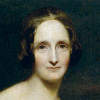“ power and renown are the objects for which they strive; and, as they are placed far above the obscurer throng of citizens, they do not always distinctly perceive how the well-being of the mass of the people ought to redound to their own honor. They are not indeed callous to the sufferings of the poor, but they cannot feel those miseries as acutely as if they were themselves partakers of them. ”
Alexis de Tocqueville, Democracy in America (1835). copy citation
| Author | Alexis de Tocqueville |
|---|---|
| Source | Democracy in America |
| Topic | misery honor |
| Date | 1835 |
| Language | English |
| Reference | |
| Note | Translated by Henry Reeve |
| Weblink | http://www.gutenberg.org/files/815/815-h/815-h.htm |
Context
“There are still further causes which may increase the sum of public expenditure in democratic countries. When the aristocracy governs, the individuals who conduct the affairs of State are exempted by their own station in society from every kind of privation; they are contented with their position; power and renown are the objects for which they strive; and, as they are placed far above the obscurer throng of citizens, they do not always distinctly perceive how the well-being of the mass of the people ought to redound to their own honor. They are not indeed callous to the sufferings of the poor, but they cannot feel those miseries as acutely as if they were themselves partakers of them. Provided that the people appear to submit to its lot, the rulers are satisfied, and they demand nothing further from the Government. An aristocracy is more intent upon the means of maintaining its influence than upon the means of improving its condition.”
source


